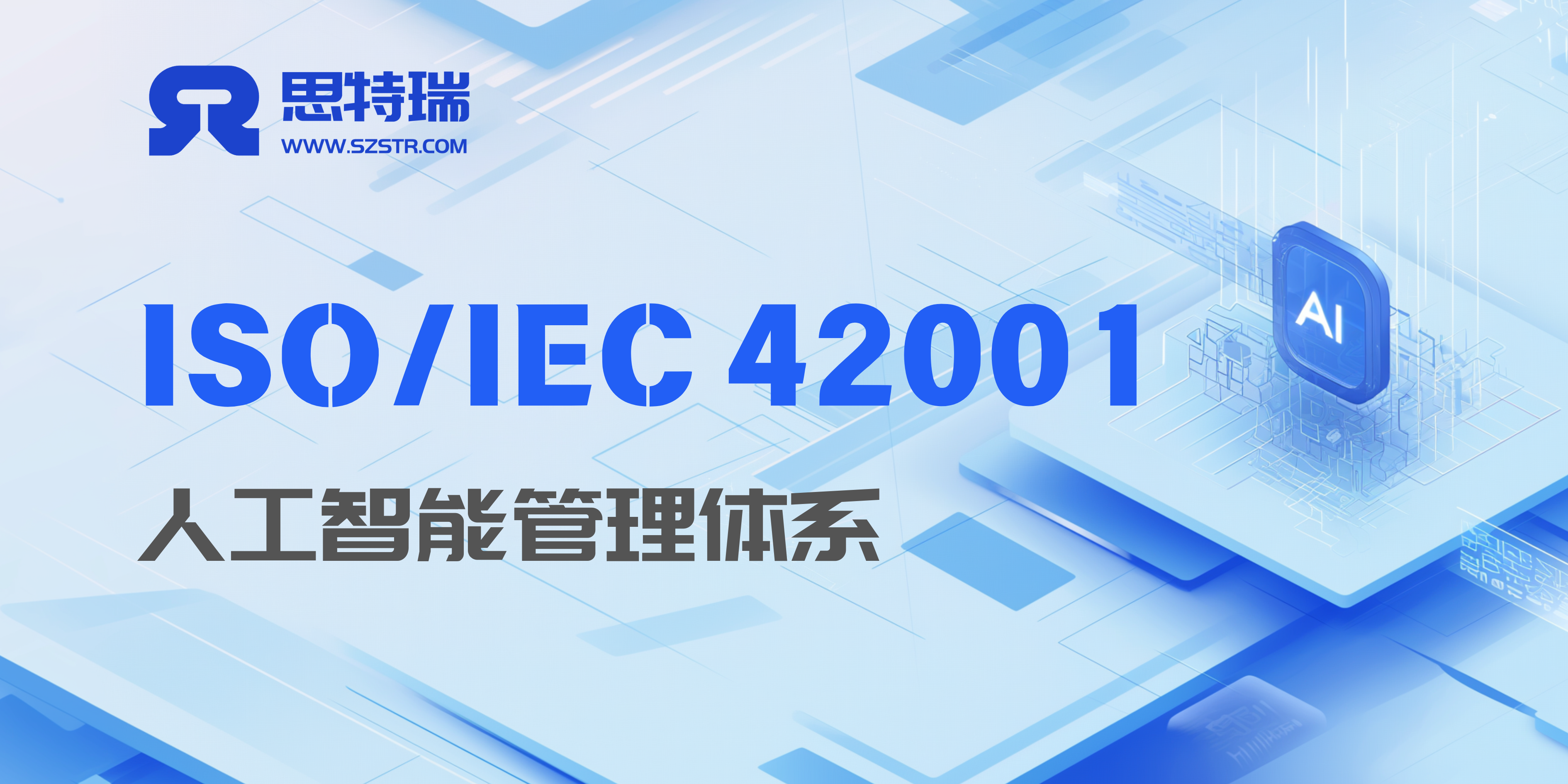
 Professional services are guaranteed
Professional services are guaranteed One on one full process guidance
One on one full process guidance Efficient and fast experience
Efficient and fast experience1. Standard definition and objectives
ISO/IEC 42001 is a certified management system standard applicable to all organizations involved in the development, deployment, and operation of AI technology. Its core objectives include:
• Promote trustworthy AI systems: Ensure transparency, interpretability, and ethical compliance of AI.
• Risk management and compliance: Identify and mitigate risks such as data privacy, algorithm bias, security vulnerabilities, etc., to meet legal and regulatory requirements.
• Stakeholder needs: Balancing the expectations of customers, employees, regulatory agencies, and other stakeholders, while also considering social, environmental, and ethical impacts.
2. Scope of application
This standard has high universality and is applicable to:
• All types of organizations: regardless of size, including enterprises, government agencies, and non-profit organizations.
• Industry wide scenarios: covering any field where AI technology is applied, such as healthcare, finance, manufacturing, etc.
ISO/IEC 42001 has built the following four core frameworks around AI lifecycle management:
1. Full lifecycle management
From strategic planning, design and development to operational monitoring and iterative optimization, standards require organizations to systematically manage every stage of AI to ensure the security and reliability of technology applications.
For example:
Development phase: It is necessary to clarify technical goals and ethical guidelines;
Deployment phase: Implement real-time monitoring and performance evaluation;
Retirement stage: Ensure data security destruction and compliant exit.
2. Stakeholder participation
The standard emphasizes the need to identify and meet the needs of stakeholders,
include:
Customer: Ensuring privacy and fairness;
Regulatory agencies: comply with data protection laws (such as GDPR) and industry standards;
Social public: Reduce negative impacts such as algorithmic discrimination.
3. Risk management and compliance
Organizations need to establish a comprehensive risk management mechanism,
Coverage:
Data quality: Ensure the accuracy, representativeness, and impartiality of training data;
Algorithm transparency: providing traceability of decision logic;
Security protection: Prevent data leakage through encryption technology and access control.
4. Continuous improvement and innovation
The standard encourages organizations to optimize AI system performance and management systems through regular review and feedback mechanisms, adapting to the challenges of rapid technological iteration.
(1) Standardization and Compliance
By obtaining ISO/IEC 42001 certification, organizations can ensure that the development and use of their AI systems comply with international standards, thereby reducing compliance risks and enhancing the organization's reputation and competitive advantage in the market.
(2) Enhance trust
Showing a sense of responsibility and transparency towards the use of AI can enhance the trust and reputation of customers, partners, and investors in the organization.
(3) Enhance management level
This standard provides organizations with a comprehensive governance framework that helps define the roles and responsibilities of personnel responsible for AI systems, as well as the rules, processes, and controls required to deploy AI systems more responsibly.
(4) Promote innovation
Encourage continuous improvement and innovation in AI project management to promote the development of AI technology.
(I.) List of Application Materials
1. System documents
Policy categories: AI ethics policy, data governance charter, risk management policy.
Process categories: AI development process, algorithm transparency mechanism, user complaint handling program.
Record categories: AI system lifecycle documentation, risk assessment reports, internal audit records.
2. Compliance certificate
Data privacy protection documents (such as GDPR compliance reports).
Algorithm fairness and security testing report (such as bias detection results).
Declaration of compliance with laws and regulations (such as industry regulatory requirements).
3. Operational evidence
Training records (ethics and compliance training for the development team and management).
AI system monitoring logs (performance degradation, user feedback analysis).
Non conformance rectification records and effectiveness verification.
4. Certification application materials
Certification scope document (specifying the scope of the applied business or system).
Basic organizational information (business license, organizational structure, AI system inventory).
The application form and contract required by the certification body.
(II.) Application requirements
1. Enterprise qualification and legality
Holding the "Enterprise Legal Person Business License" or equivalent document issued by the Administration for Industry and Commerce;
Foreign enterprises are required to provide registration certificates from relevant institutions;
Organizations with independent legal personality or authorized by independent legal entities;
During the operation of the management system and within one year before its establishment, the enterprise has not been subject to administrative penalties by the competent authorities.
2. Management system requirements
The artificial intelligence management system must be established in accordance with the requirements of ISO/IEC 42001 standard and run for more than 3 months;
It is necessary to develop and improve management system documents, including management manuals, procedural documents, work instructions, etc.
3. Review and evaluation
At least one internal audit must be completed, covering all key business processes and departments;
At least one management review is required to comprehensively evaluate the suitability, adequacy, and effectiveness of the management system, and propose improvement measures.
4. Personnel and Resources
Professional personnel who can understand and apply the ISO/IEC 42001 standard are required, including management and executive personnel;
Employees need to receive training on ISO/IEC 42001 standards and artificial intelligence management related knowledge;
Necessary resources are required to support the operation of the artificial intelligence management system, including human resources, financial resources, technical resources, equipment and facilities, etc.
5. Risk Management and Data Management
A comprehensive data management system needs to be established to ensure the accuracy, completeness, security, and privacy of the data used by artificial intelligence systems.
6. Supplier Management
If cooperating with suppliers to carry out artificial intelligence related business, it is necessary to establish a supplier management system to evaluate and manage the qualifications, abilities, reputation, etc. of suppliers.










Wechat ID:Siterui888888
Add a wechat friend to get free plans and quotations


 Contact
Contact




 定制化解决方案
定制化解决方案 专业咨询指导
专业咨询指导 透明化服务
透明化服务 长期顾问式合作
长期顾问式合作